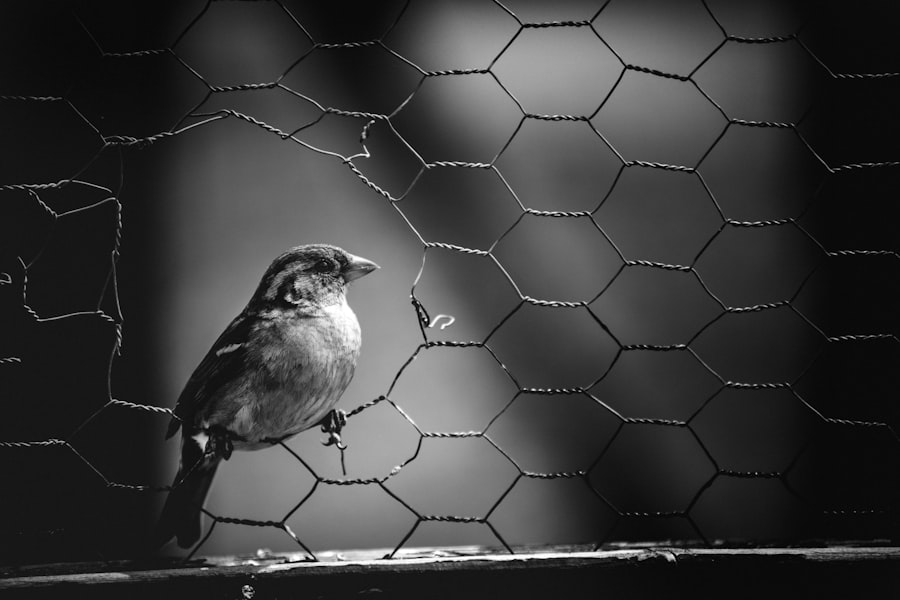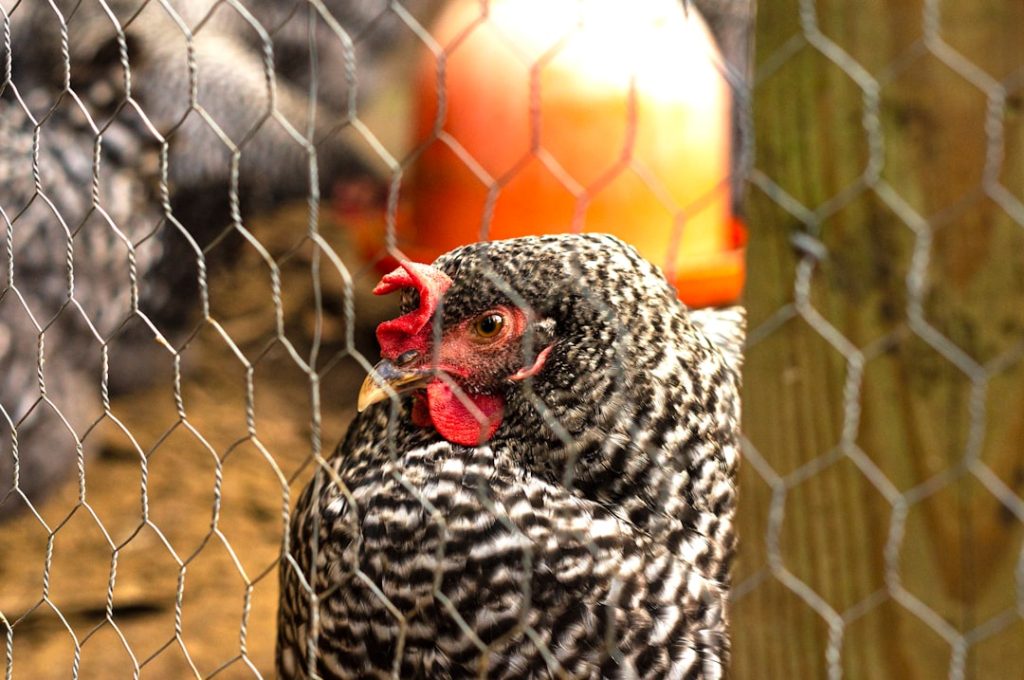Chickens have a natural inclination towards roosting, a behavior that provides them with a sense of safety and security. In their natural habitat, chickens roost in trees to protect themselves from predators and to rest during nighttime hours. This instinctive behavior persists in domesticated chickens, causing them to seek elevated perches for roosting.
Roosting also serves the purpose of helping chickens regulate their body temperature and maintain warm feet during colder periods. Understanding this innate behavior is essential when addressing roosting issues, as it enables the creation of appropriate alternative roosting options for chickens. Chickens are creatures of habit and typically adhere to a strict routine, often returning to the same roosting location each night.
Once they have established a pattern of roosting in a particular spot, such as a porch, it can be difficult to alter this behavior. By comprehending the natural instincts and habitual tendencies of chickens, one can more effectively address roosting issues and develop a more suitable environment for the flock.
Table of Contents
- 1 Creating a designated roosting area
- 2 Using deterrents to discourage roosting on the porch
- 3 Providing alternative roosting options
- 4 Keeping the porch area uninviting for roosting
- 5 Consistently enforcing boundaries
- 6 Seeking professional advice if the issue persists
- 7 FAQs
- 7.1 What are the reasons chickens roost on the porch?
- 7.2 How can I prevent chickens from roosting on the porch?
- 7.3 What are some natural deterrents to keep chickens off the porch?
- 7.4 Are there any commercial products available to keep chickens off the porch?
- 7.5 Is it important to provide alternative roosting options for chickens?
Key Takeaways
- Chickens have natural roosting instincts and prefer to perch in elevated areas at night.
- Designating a specific roosting area with comfortable perches can help chickens feel secure and reduce roosting in unwanted areas.
- Using deterrents such as motion-activated lights or sprinklers can discourage chickens from roosting on the porch.
- Providing alternative roosting options, such as elevated platforms or designated roosting poles, can redirect chickens away from the porch.
- Keeping the porch area uninviting for roosting by removing food sources and keeping the area clean can help discourage chickens from roosting there.
- Consistently enforcing boundaries and redirecting chickens to designated roosting areas can help establish and maintain roosting habits.
- If roosting on the porch persists despite efforts, seeking professional advice from a veterinarian or animal behaviorist may be necessary to address the issue.
Creating a designated roosting area
Creating an Inviting Roosting Area
By providing a suitable alternative for roosting, you can redirect your chickens’ behavior away from the porch and towards a more appropriate area. To make the designated roosting area as inviting as possible, keep it clean, dry, and well-ventilated.
Adding Comfortable Bedding
Adding bedding material such as straw or wood shavings can make the area more comfortable for your chickens to roost on. This will encourage them to use the designated roosting area instead of your porch.
Meeting Your Chickens’ Natural Instincts
By creating a designated roosting area that meets your chickens’ natural instincts and needs, you can effectively discourage them from roosting on your porch. This will help to keep your porch clean and free from chicken droppings, while also providing your chickens with a safe and comfortable place to roost.
Using deterrents to discourage roosting on the porch

If your chickens continue to roost on your porch despite providing them with a designated roosting area, you can use deterrents to discourage this behavior. One effective deterrent is to make the porch area less inviting for roosting. This can be done by removing any perches or ledges that chickens may be using to roost on.
By eliminating potential roosting spots, you can make the porch area less appealing for your chickens. Another deterrent is to use physical barriers such as wire mesh or netting to block off access to the porch. This can prevent chickens from accessing the porch and encourage them to roost in their designated area instead.
Additionally, you can use visual deterrents such as scarecrows or reflective objects to make the porch area seem less safe and secure for roosting. By using a combination of deterrents, you can effectively discourage chickens from roosting on your porch.
Providing alternative roosting options
In addition to creating a designated roosting area within the coop or run, you can also provide alternative roosting options for your chickens. This can include adding additional perches or roosting bars in different areas of the coop or run. By offering multiple roosting options, you can give your chickens the opportunity to choose a spot that suits their preferences, reducing the likelihood of them roosting on the porch.
Another alternative roosting option is to provide your chickens with a variety of materials to perch on, such as different types of branches or logs. This can mimic the natural environment of wild chickens and provide them with a more diverse and stimulating roosting experience. By providing alternative roosting options, you can cater to your chickens’ individual preferences and reduce the likelihood of them roosting on your porch.
Keeping the porch area uninviting for roosting
In addition to using deterrents, you can also take steps to make the porch area uninviting for roosting. This can include keeping the area clean and free of food scraps or other enticing materials that may attract chickens. By removing potential food sources, you can reduce the likelihood of chickens being drawn to the porch area for roosting.
You can also make the porch area less comfortable for roosting by keeping it well-lit during the night. Chickens prefer to roost in dark, quiet areas, so by keeping the porch well-lit, you can discourage them from roosting there. Additionally, you can use motion-activated lights or sound devices to startle chickens if they attempt to roost on the porch.
By making the porch area less inviting and comfortable for roosting, you can effectively deter chickens from using it as a roosting spot.
Consistently enforcing boundaries

Regularly Check and Remove
Regular checks of the porch area are essential to detect any signs of roosting. Promptly remove any chickens that may be attempting to roost there to maintain the established boundaries.
Proactive Measures
Being proactive in addressing potential roosting issues is vital. Regularly inspect the coop and run for any potential roosting spots and address them promptly. This will help prevent roosting issues from arising in the first place.
Effective Boundary Enforcement
By consistently reinforcing boundaries and being proactive in addressing potential roosting issues, you can effectively discourage chickens from roosting on your porch. This will help maintain a clean and safe environment for both you and your chickens.
Seeking professional advice if the issue persists
If despite your best efforts, the issue of chickens roosting on your porch persists, it may be time to seek professional advice. A veterinarian or experienced poultry keeper may be able to provide additional insights and recommendations for addressing roosting issues with your flock. They can help assess the overall health and well-being of your chickens and provide guidance on creating a more suitable environment for them.
Professional advice may also involve seeking assistance from an animal behaviorist who specializes in poultry behavior. They can provide valuable insights into understanding and addressing roosting issues with your chickens. By seeking professional advice, you can gain a deeper understanding of your flock’s behavior and receive tailored recommendations for effectively addressing roosting issues on your porch.
In conclusion, understanding the behavior of chickens is crucial in addressing roosting issues and creating a more suitable environment for your flock. By providing a designated roosting area, using deterrents, providing alternative roosting options, keeping the porch area uninviting for roosting, consistently enforcing boundaries, and seeking professional advice if needed, you can effectively discourage chickens from roosting on your porch and create a more comfortable and secure environment for them within their coop or run.
If you’re struggling with chickens roosting on your porch, you may want to consider building a large chicken coop to provide them with a more suitable roosting area. Check out this article on large chicken coop ideas for some inspiration on creating a comfortable and spacious living space for your feathered friends.
FAQs
What are the reasons chickens roost on the porch?
Chickens may roost on the porch due to a lack of suitable roosting options in their coop, a desire for warmth or shelter, or simply out of habit.
How can I prevent chickens from roosting on the porch?
To prevent chickens from roosting on the porch, provide them with adequate roosting options in their coop, such as elevated perches or roosting bars. Additionally, blocking off access to the porch or using deterrents such as motion-activated sprinklers can help discourage chickens from roosting there.
What are some natural deterrents to keep chickens off the porch?
Natural deterrents to keep chickens off the porch include citrus peels, coffee grounds, or vinegar, as chickens tend to dislike the smell of these substances.
Are there any commercial products available to keep chickens off the porch?
Yes, there are commercial products such as motion-activated sprinklers, ultrasonic repellents, or physical barriers specifically designed to keep chickens away from certain areas, including porches.
Is it important to provide alternative roosting options for chickens?
Yes, it is important to provide alternative roosting options for chickens to ensure their comfort and well-being. Proper roosting areas in the coop can also help prevent chickens from seeking out alternative roosting spots, such as the porch.
Meet Walter, the feathered-friend fanatic of Florida! Nestled in the sunshine state, Walter struts through life with his feathered companions, clucking his way to happiness. With a coop that’s fancier than a five-star hotel, he’s the Don Juan of the chicken world. When he’s not teaching his hens to do the cha-cha, you’ll find him in a heated debate with his prized rooster, Sir Clucks-a-Lot. Walter’s poultry passion is no yolk; he’s the sunny-side-up guy you never knew you needed in your flock of friends!







